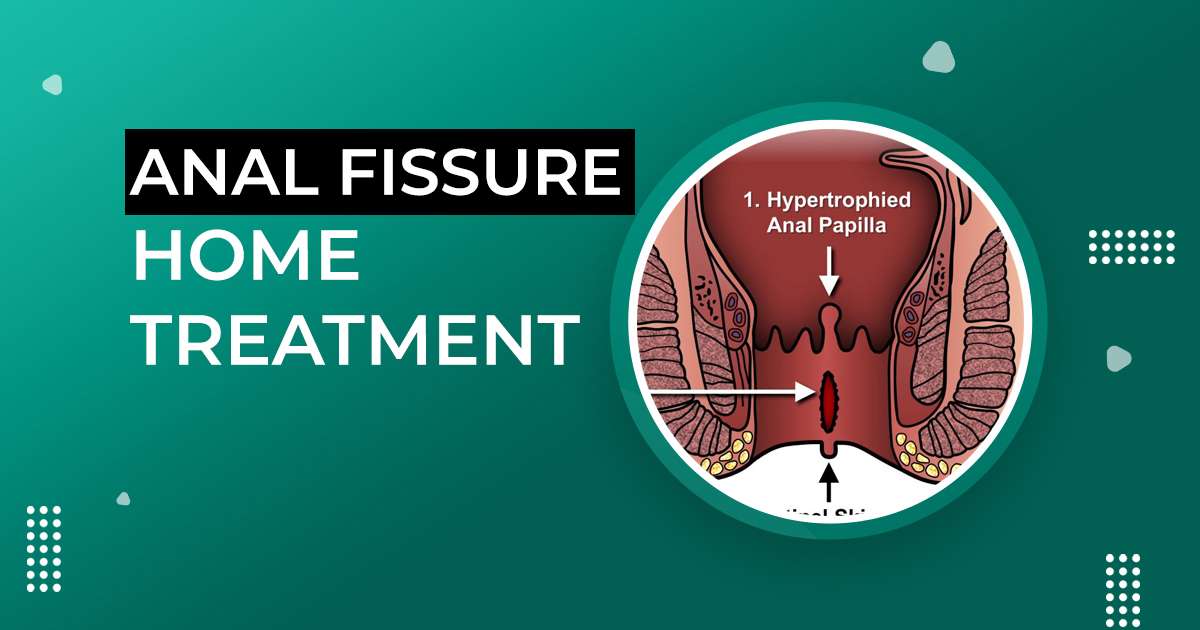Anal fissures are small tears in the lining of the anus that can cause pain, discomfort, and bleeding during bowel movements. While medical treatments are available, natural remedies can play a crucial role in preventing and managing fissures. By making simple lifestyle and dietary changes, you can reduce the risk of developing anal fissures and promote faster healing. Below are the best home remedies to prevent and relieve fissures effectively.
1. Stay Hydrated to Keep Stools Soft
Drinking plenty of fluids is essential for maintaining soft stools and preventing constipation, one of the leading causes of anal fissures. Hard stools can cause strain during bowel movements, increasing the risk of developing fissures. Aim to drink at least 8–10 glasses of water daily, and consider hydrating with natural fruit juices and herbal teas to support digestion.
2. Increase Dietary Fiber Intake
A high-fiber diet can help regulate bowel movements and prevent constipation. Fiber adds bulk to stools, making them easier to pass. Foods rich in fiber include:
- Whole grains (oats, brown rice, quinoa)
- Fresh fruits (apples, pears, oranges)
- Vegetables (broccoli, carrots, spinach)
- Legumes (lentils, beans, chickpeas)
Health experts recommend consuming at least 25–30 grams of fiber daily. Gradually increasing fiber intake can prevent bloating and discomfort while improving digestive health.
3. Take Warm Baths (Sitz Baths) for Relief
Soaking in a warm bath for 15–20 minutes, especially after bowel movements, can help relax the anal muscles and promote healing. Warm water improves blood circulation in the affected area, reducing pain, irritation, and inflammation. Adding Epsom salt to the water can provide additional soothing effects.
4. Use Natural Stool Softeners or Mild Laxatives
If you experience frequent constipation, using a stool softener can help ease bowel movements. Natural options like psyllium husk, flaxseeds, and prunes can act as gentle laxatives. Over-the-counter stool softeners should only be used after consulting a doctor to avoid dependency.
5. Avoid Straining During Bowel Movements
Straining while passing stools can put excessive pressure on the anal canal, worsening existing fissures or creating new ones. To prevent straining:
- Establish a regular bowel routine
- Avoid delaying the urge to pass stools
- Use a small footstool to elevate your feet while sitting on the toilet, mimicking a natural squatting position
Practicing these habits can reduce pressure on the anal region and support smooth bowel movements.
6. Apply Soothing Ointments and Natural Remedies
Topical creams and ointments with ingredients like aloe vera, coconut oil, or petroleum jelly can provide relief by keeping the affected area moisturized and reducing irritation. Some over-the-counter creams contain lidocaine for pain relief, but always consult a healthcare professional before using any medication.
7. Avoid Spicy and Acidic Foods
Certain foods can irritate the anal region and worsen discomfort associated with fissures. To prevent irritation:
- Limit spicy foods, hot peppers, and curries
- Reduce intake of acidic foods like citrus fruits and tomatoes
- Avoid processed foods high in artificial additives
Opting for a balanced diet rich in fiber and healthy fats can improve digestion and prevent aggravation of anal fissures.
8. Exercise Regularly for Better Digestion
Physical activity helps stimulate bowel movements and reduces the risk of constipation. Engaging in at least 30 minutes of moderate exercise, such as walking, yoga, or swimming, can promote healthy digestion. Yoga poses that support gut health, such as child’s pose and seated twists, may also be beneficial.
9. Maintain Proper Hygiene to Prevent Infection
Keeping the anal area clean and dry is crucial in preventing infections and further irritation. Use soft, unscented toilet paper or cleansing wipes instead of harsh soaps. After a bowel movement, gently clean the area with lukewarm water and pat it dry instead of rubbing.
10. Consider Herbal Remedies for Healing
Certain natural remedies have anti-inflammatory and healing properties that can aid in fissure recovery. Some effective options include:
- Aloe Vera Gel: Helps soothe irritation and promotes tissue healing.
- Coconut Oil: Acts as a natural lubricant and has antimicrobial properties.
- Witch Hazel: Reduces swelling and relieves itching.
- Turmeric Paste: Contains curcumin, which has anti-inflammatory effects.
Applying these natural remedies regularly can speed up the healing process and reduce discomfort.
11. Follow a Regular Bowel Routine
Establishing a consistent bowel routine can help prevent constipation and reduce the risk of fissures. Try to use the bathroom at the same time each day and avoid holding in stools for long periods. This habit trains your body to pass stools more efficiently.
12. When to Seek Medical Attention
While home remedies can be highly effective, some cases require medical intervention. Seek professional advice if:
- The fissure does not heal within 6 weeks
- You experience severe pain, bleeding, or infection
- Symptoms persist despite lifestyle changes
Early medical evaluation can prevent complications and ensure proper treatment.
Conclusion
Preventing and managing anal fissures naturally involves a combination of hydration, a high-fiber diet, good hygiene, and lifestyle modifications. By following these home remedies, you can significantly reduce the risk of fissures and promote faster healing. However, if symptoms persist or worsen, consulting a healthcare professional is crucial for further treatment.
At Chirag Global Hospitals, we offer specialized treatment for fissures and other anorectal conditions. Our expert team is dedicated to providing comprehensive care and effective solutions. Contact us today to learn more about how we can help you achieve optimal digestive health.
Continue reading here: Home remedies to prevent fissures





Comments